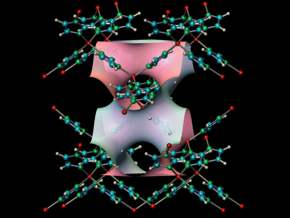
Suche

PRIORITY PROGRAM
“Porous Metal-Organic
Frameworks”
 Coordinator & Contact
Coordinator & Contact
 Summary
Summary
 Projects and
Projects andParticipants - Part I
 Projects and
Projects andParticipants - Part II
EVENTS
 Topical Workshop 2009
Topical Workshop 2009MOF Modelling for PhD
students
 Kickoff meeting 2009
Kickoff meeting 2009
 Topical Workshop 2010
Topical Workshop 2010Adsorption and Diffusion
in MOFs for PhD
students
 MOF 2010 - Marseille
MOF 2010 - Marseille Meeting after MOF 2010 -
Meeting after MOF 2010 - Marseille
 Workshop "MOF Synthesis and
Workshop "MOF Synthesis andStructure London 2010"
 2. Assessment SPP 1362
2. Assessment SPP 1362 in Dresden 2011
 Topical Workshop "Catalysis"
Topical Workshop "Catalysis"for PhD students Stuttgart
2011
 International Symposium on
International Symposium on
Metal-Organic Frameworks
2011 in Dresden
 Workshop "MOFs for industrial
Workshop "MOFs for industrial
applications Bergamo 2011"
 Topical Workshop "MOF-Based
Topical Workshop "MOF-Based
Chemical Sensors" München
2012
 MOF Status Report Meeting
MOF Status Report Meeting
2012 - Dresden
 International MOF Symposium
International MOF Symposium
2013 - Dresden
LINKS
 Chair of Inorganic Chemistry I
Chair of Inorganic Chemistry I
Prediction, synthesis and characterization of novel Imidazolate based metal organic frameworks
Consortium: |
Professor Dr. Hans-Jürgen Holdt, Potsdam |
Privatdozent Dr. Stefano Leoni, Dresden |
|
Professor Dr. Gotthard Seifert, Dresden |
|
Professor Dr. Arne Thomas, Berlin |
|
Project: |
Prediction, synthesis and characterization of novel Imidazolate based metal organic frameworks |
Abstract: |
The structural manifold of zeolites, based on Si(Al)O4 tetrahedra is on the contrary very contracted in MOF based on tetrahedral
networks. The variety of their known topologies can in fact be summarized in a few topological representatives. A promising way of combining high
porosity, framework diversity and transition metals centers, which may offer potentially catalytic sites, is represented by imidazole-based MOF,
in particular with Zn, Co, In as coordination centers, owing to their analogy to zeolithes. For zinc imidazolates (ZIFs), while the experimental,
solvent free thermodynamic stable compound is very compact and thus basically not porous, some silica-like open-frame works have been synthesized
with porous networks (zeolites DFT, GIS, MER) and untypical topologies. This hints at a hidden structural diversity that awaits to be unfolded.
|
Results: |

A new class of imidazolate based framework could be synthesized and characterized - IFPn – Imidazolate Framework Potsdam. The figure shows a hypothetical framework of such type with the periodic nodal surface. |
Publications: |
F. Debatin, A. Thomas, A. Kelling, N. Hedin, Z. Bacsik, I. Senkovska, S. Kaskel, M. Junginger, H. Müller, U. Schilde, C. Jäger, A.
Friedrich, H.-J. Holdt
|
|
K. Zagorodniy, G. Seifert and H. Hermann
|
|
I. A. Baburin, S. Leoni, G. Seifert
|
|
I. A. Baburin, S. Leoni,
|
|
I. A. Baburin, B. Assfour, G. Seifert, S. Leoni
|
|
B. Assfour, S. Leoni and G. Seifert
|
OTHER EVENTS
- Calendar of events TU Dresden
- 16.-17.09.2013 (Dresden, GERMANY)
International MOF Symposium 2013 - 08.-11.09.2014 (Leipzig, GERMANY)
FEZA2014 - 28.09.-01.10.2014 (Kobe, JAPAN)
MOF2014 - Starting on 18.04.2014 (Hamburg, GERMANY)
Crystals & Symmetry Course
PUBLICATION NEWS
- TU Dresden’s DUT-6 claimed by other scientists
- 10.05.2012
Themed Issue on Metal-Organic Frameworks now published - 05.12.2012
Deuterium from a quantum sieve
CONTACT
Project Assistant
![]()
![]()
Phone: +49 351 463-33632
Fax: +49 351 463-37287
Email:
sekretariat-ac1@mailbox.tu-dresden.de
Office:
![]()
Bergstraße 66,
Neubau Chemische Institute,
Zi. 462
Mail to:
![]()
TU Dresden
Fachrichtung Chemie
und Lebensmittelchemie
![]()
Professur für Anorganische Chemie I
![]()
01062 Dresden
Bulk mail to:
![]()
Fachrichtung Chemie
und Lebensmittelchemie
![]()
Professur für Anorganische Chemie I
![]()
Helmholtzstraße 10
01069 Dresden